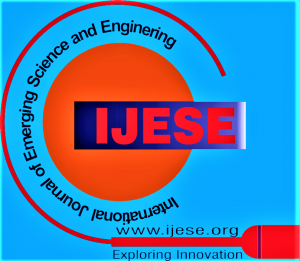![]()
Portrayal Based Concept Classification for Extracting „Operating System‟ E- Content
D.Elangovan1, K. Nirmala2
1D.ELANGOVAN. MCA, MPHIL, Research Scholar, Manonmanium Sundaranar University, Thirunelveli
2K.NIRMALA, M.C.A.,Ph.D., Research supervisor & Associate professor, Department of computer science, Quaid-e-millath govt.college for women Chennai-02
Manuscript received on October 11, 2013. | Revised Manuscript received on October 15, 2013. | Manuscript published on October 25, 2013. | PP:27-30 | Volume-1, Issue-12, October 2013. | Retrieval Number: L05151011213/2013©BEIESP
Open Access | Ethics and Policies | Cite
© The Authors. Published By: Blue Eyes Intelligence Engineering and Sciences Publication (BEIESP). This is an open access article under the CC BY-NC-ND license (http://creativecommons.org/licenses/by-nc-nd/4.0/)
Abstract: Portrayals (or cognitive structures) may be used as bases for classifying e-content documents of problem centric courses such as ‘Operating System’. As concept extractions cannot be fully automated, this paper suggests a novel technique in the form of procedures for identifying portrayal based and domain dependent documents for selecting appropriate e-contents.[3] The paper has considered the ‘First Principles of Instruction’ (FPI) of David Merrill in the form of its four cognitive structures namely Activation, Demonstration, Application and Integration as portrayals. The paper suggests developing and storing of e-contents in the form of these portrayals explicitly. The paper points out clearly that it is quite possible to represent portrayal documents, which are tagged with the e-content documents for the subject ‘Operating System’. The proposed procedure has symbolized two portrayal concept words of ‘Activation’ and ‘Demonstration’ for Operating System. Our proposed approach is based on literature support on concept mining that uses portrayals. Comparative studies through experiments on these two portrayals have been made with our suggested procedure and that of pure keyword searches of the same subject contents. The paper has validated its approach through 38 selective learner respondents who were requested to present concept based short sentences which are used for extraction of the tagged e-documents. It is proved that extraction is quick and easy, even when the e-documents did not have specified keywords. Conclusions that are drawn from the studies would be of use to e-content developers and concept extractors [1].
Keywords: Concept extraction, Concept portrayals, Portrayal
classifications, Operating Systems e-content.
